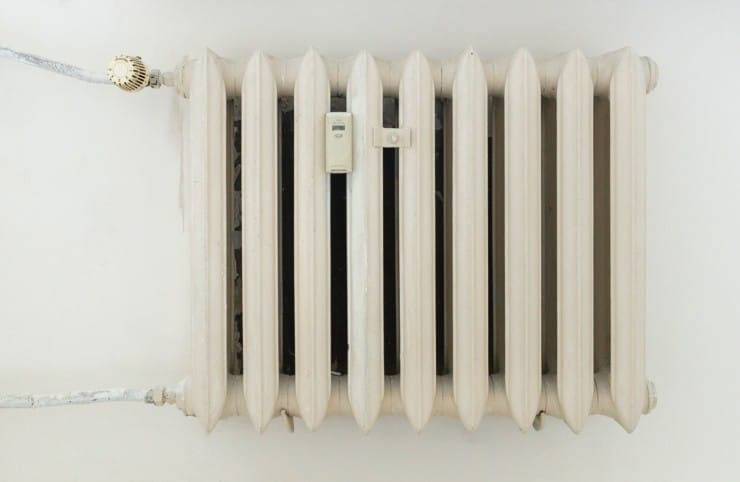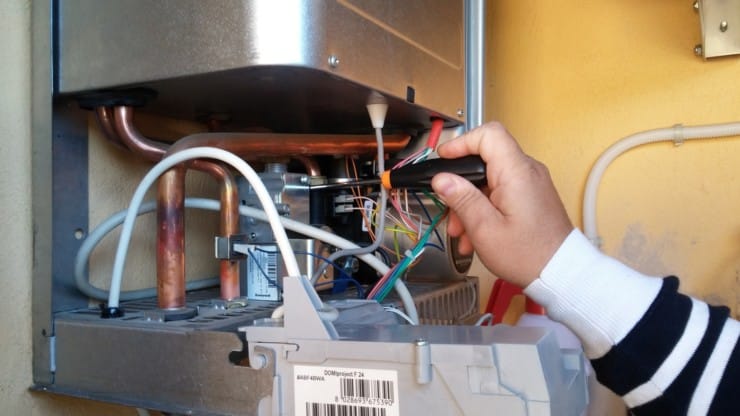How Do I Know If My Home Is Gas or Electric?
If you have recently moved and are now in charge of paying utilities, or if you are a new homeowner and the previous owner used to cover all expenses.
Regardless of your situation, if you’re now in charge of paying utilities, you need to know how your home is powered; is it gas or electric?
How Do I Know If My Home Is Gas or Electric?

To find out, look for these three parameters:
- The type of fuel your home uses
- The type of water heater in your home
- The type of heating and cooling system in your home.
Besides, looking at your monthly statements from the utility company for the word “gas,” then that’s how your home is powered.
However, if you don’t see the word “gas” but see “electricity” or “kWh,” your home is powered by electricity.
This article will discuss each of these three things in more detail, so you understand how your home is powered.
Moreover, we’ll offer tips on saving money whether your home is gas or electric.
The Type of Fuel Your Home Uses
To know whether your home is gas or electric, you need to know what fuel it uses.
The two most common types of fuel are natural gas and propane.
Natural gas is a fossil fuel composed of methane and other gases. It’s typically used to heat homes and power appliances like clothes dryers, water heaters, and ovens.
On the other hand, propane is a petroleum product most commonly used in rural areas for heating homes and power appliances like those powered by natural gas.
The type of fuel your home uses is determined by its location.
If you live in an urban area, chances are your home is powered by natural gas. However, your home is most likely powered by propane if it’s in a rural area.
To find out for sure, look at your monthly utility bill; the type of fuel used will be listed there. If you still can’t find it, give your utility company a call, and they’ll tell you.
The Type of Water Heater in Your Home
Another way to determine whether your home is gas or electric is by looking at the type of water heater.
The three most common water heaters are electric, natural gas, and propane.
Propane and natural gas water heaters look similar and are often mistaken for one another. The best way to tell them apart is by looking at the venting.
Propane water heaters have a vertical vent stack, while natural gas water heaters have a horizontal one.
As the name suggests, electric water heaters use electricity to heat water. They’re the most common type of water heater and are typically found in urban areas.
Thus, simply look at it to find out what type of water heater your home got.
The type of fuel it uses will be listed on the side or front of the unit. You will see either “natural gas,” “propane,” or “electric” listed.
The Type of Heating and Cooling System in Your Home
The other way to determine whether your home is gas or electric is by looking at the type of heating and cooling system.
The three most common heating and cooling systems are electric, natural gas, and propane.
Natural Gas Powered Heating and Cooling System
The natural gas system is the most common heating and cooling system. It uses a network of pipes that deliver natural gas to your home.
Natural gas then powers a furnace, which heats air and blows it through ducts to different rooms in your home.
Propane Powered Heating and Cooling System
This heating and cooling system is most commonly found in rural areas. It uses a network of pipes that deliver propane to your home.
The propane then powers a furnace, which heats air and blows it through ducts to different rooms in your home.
Electric Powered Heating and Cooling System
Electrically powered heating and cooling system aren’t as common as the other two. Nevertheless, you may have this type of system in your home.
It uses electricity to power a furnace, which heats air and blows it through ducts to different rooms in your home.
Pros and Cons of Electricity, Propane, and Natural Gas for Homes
Now that you know how to tell if your home is gas or electric let’s look at the pros and cons of each type of power.
Electricity
It’s an efficient way to power your home because the cost of electricity is relatively stable.
Electric heating and cooling systems are cheaper to operate than gas or propane systems despite being expensive to install.
Electricity is clean and doesn’t produce any harmful emissions. However, the main downside of electricity is that it’s not always available.
For example, during a power outage, you won’t be able to use your electric appliances.
Natural Gas
Natural gas is a clean and efficient way to power your home. It’s also cheaper than electricity, making it a good option for families on a budget.
The main downside of natural gas is that it’s flammable and is dangerous if it leaks. Natural gas leaks are also difficult to detect because they are odorless.
Propane
Propane is a petroleum product most commonly used in rural areas for heating homes and powering appliances like those powered by natural gas.
Propane is a clean and efficient way to power your home. However, it’s more expensive than electricity and natural gas.
Thus, gas is less expensive than electricity, making it a more affordable option for many people.
The gas heating system is more efficient than electric heating. However, electricity is cleaner and doesn’t produce any harmful emissions.
Gas is also more available than electricity, making it a more reliable option for many people.
Now that you know the pros and cons of each type of power, you can decide which is suitable for your home.
If you’re looking for a clean and efficient option, electricity is the way to go. However, if you’re on a budget, natural gas or propane is better.
Tips on How to Save Money on Your Heating System

- Install a programmable thermostat
- Insulate your home’s attic, walls, and basement
- Install storm windows and doors
- Close vents in rooms that you don’t use often
- Buy a space heater for supplemental heat
- Seal windows and doors to prevent heat from escaping.
By following these tips, you will save money on your heating system and have a comfortable home all winter long.
Final Thoughts
Knowing whether your home is gas or electric is vital for various reasons.
It helps you budget for your heating costs, choose the most efficient type of heating system, and even save money on your energy bills.
If you’re not sure which type of power your home uses, look at your appliances and ask your landlord or utility company.
They should tell you which type of power your home uses.
Once you know whether your home is gas or electric, decide which heating system is right for you. For instance, if you’re looking for a clean and efficient option, electricity is the way to go.
However, natural gas or propane may be the better option for you when on budget.







